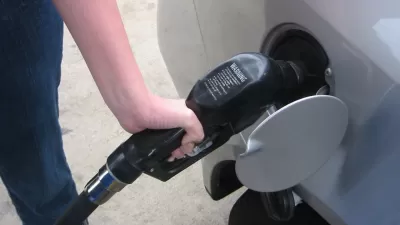The Washington Post takes stock of the Home Affordable Modification Program (HAMP) in its final days, finding a program hampered by bad faith from large banks and bad oversight by the Treasury Department.
"When the Obama administration announced a massive effort to help distressed homeowners in 2009, it set high expectations. The program, government officials said, would keep up to 4 million borrowers out of foreclosure," according to an article by Renae Merle.
Six years later, and seemingly eons removed from the fear provoked by the housing crisis of the Great Recession, the Home Affordable Modification Program accepted its final applications earlier this week. "About 1.6 million borrowers have seen their mortgage payments lowered through the program so far, but about a third of those people eventually fell behind on their payments again," writes Merle.
The gap between HAMP's goals and its achievements is sizable, and there is plenty of blame to go around:
…the effort has been bedeviled by complaints that banks repeatedly lost homeowners’ paperwork or incorrectly told them that they didn’t qualify for help. The Treasury Department didn’t act quickly enough to force banks to abide by the rules of the program, housing advocates have said. Nearly 70 percent of the homeowners who applied for the program were rejected, according to government data.
A 2014 report even found evidence that Black and Hispanic borrowers faced discrimination by HAMP. Those are not the troubling accusations leveled at the banking industry in the article, but banks will continue to receive billions in incentive payments after the program expires, despite having repeatedly broken the rules of the program.
Merle's coverage also pivots to a discussion of the accomplishments of the Home Affordable Refinance Program (HARP), which has also fallen short of targets and has been extended several times. HARP is set to expire in September 2017.
FULL STORY: After helping a fraction of homeowners expected, Obama’s foreclosure prevention program is finally ending

Planetizen Federal Action Tracker
A weekly monitor of how Trump’s orders and actions are impacting planners and planning in America.

Maui's Vacation Rental Debate Turns Ugly
Verbal attacks, misinformation campaigns and fistfights plague a high-stakes debate to convert thousands of vacation rentals into long-term housing.

San Francisco Suspends Traffic Calming Amidst Record Deaths
Citing “a challenging fiscal landscape,” the city will cease the program on the heels of 42 traffic deaths, including 24 pedestrians.

Amtrak Rolls Out New Orleans to Alabama “Mardi Gras” Train
The new service will operate morning and evening departures between Mobile and New Orleans.

The Subversive Car-Free Guide to Trump's Great American Road Trip
Car-free ways to access Chicagoland’s best tourist attractions.

San Antonio and Austin are Fusing Into one Massive Megaregion
The region spanning the two central Texas cities is growing fast, posing challenges for local infrastructure and water supplies.
Urban Design for Planners 1: Software Tools
This six-course series explores essential urban design concepts using open source software and equips planners with the tools they need to participate fully in the urban design process.
Planning for Universal Design
Learn the tools for implementing Universal Design in planning regulations.
Heyer Gruel & Associates PA
JM Goldson LLC
Custer County Colorado
City of Camden Redevelopment Agency
City of Astoria
Transportation Research & Education Center (TREC) at Portland State University
Jefferson Parish Government
Camden Redevelopment Agency
City of Claremont




























